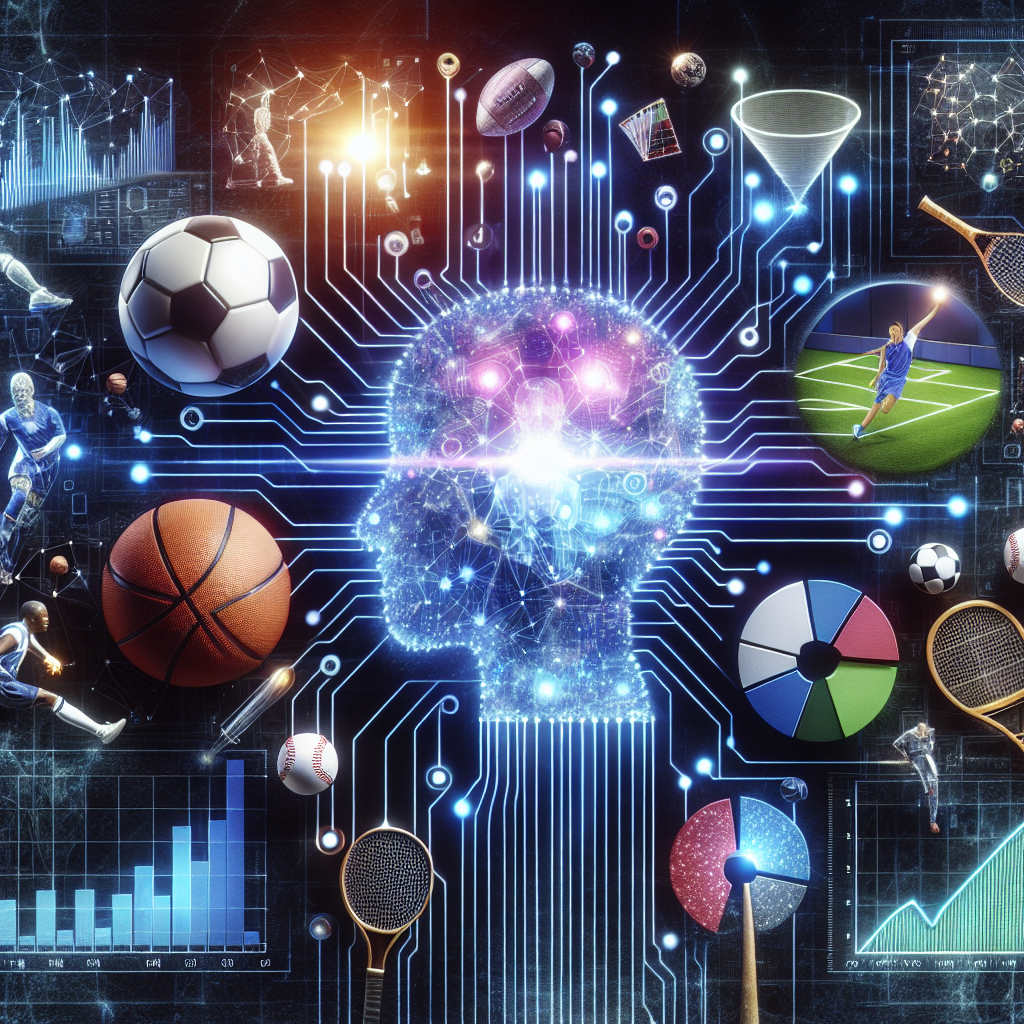Artificial intelligence (AI) has revolutionized various industries, and sports analytics is no exception. With the help of AI tools, sports teams and organizations can now gather and analyze data more effectively, leading to better decision-making and improved performance on the field. In this article, we will explore the applications of AI tools in sports analytics and how they are transforming the way sports are played and managed.
One of the key applications of AI in sports analytics is player performance analysis. AI tools can analyze vast amounts of data, such as player statistics, game footage, and even biometric data, to provide insights into a player’s performance. This can help coaches and trainers identify areas for improvement, develop personalized training programs, and make informed decisions about player selection and tactics.
For example, AI-powered video analysis tools can automatically track player movements on the field, identify patterns and trends, and provide real-time feedback to coaches. This can help teams optimize their game strategies, improve player performance, and gain a competitive edge over their opponents.
Another important application of AI in sports analytics is predictive modeling. By analyzing historical data and using machine learning algorithms, AI tools can predict future outcomes, such as game results, player injuries, and even fan engagement. This can help sports organizations make strategic decisions, such as drafting players, signing contracts, and marketing campaigns.
AI-powered predictive modeling can also be used to optimize game strategies in real time. For example, AI algorithms can analyze game data, such as player positions, ball movements, and scoring patterns, to recommend tactics and substitutions that maximize the team’s chances of winning.
In addition to player performance analysis and predictive modeling, AI tools can also be used for fan engagement and marketing. By analyzing social media data, ticket sales, and other sources of fan feedback, sports organizations can tailor their marketing campaigns and promotions to attract and retain fans. AI-powered chatbots can also provide personalized recommendations and customer service to enhance the fan experience.
Overall, the applications of AI tools in sports analytics are vast and diverse. From player performance analysis to predictive modeling and fan engagement, AI is reshaping the way sports are played, managed, and experienced. As AI technology continues to advance, we can expect even more innovative applications and solutions to emerge in the world of sports analytics.
Frequently Asked Questions (FAQs):
Q: How accurate are AI predictions in sports analytics?
A: The accuracy of AI predictions in sports analytics depends on various factors, such as the quality of the data, the complexity of the algorithms, and the expertise of the analysts. In general, AI-powered predictive models can be highly accurate, especially when trained on large amounts of high-quality data.
Q: Can AI tools replace human coaches and analysts in sports?
A: While AI tools can provide valuable insights and recommendations, they are not meant to replace human coaches and analysts. Instead, AI should be seen as a complement to human expertise, helping coaches and analysts make more informed decisions and optimize their strategies.
Q: How are sports organizations using AI for fan engagement?
A: Sports organizations are using AI to analyze social media data, ticket sales, and other sources of fan feedback to tailor their marketing campaigns and promotions. AI-powered chatbots are also being used to provide personalized recommendations and customer service to enhance the fan experience.
Q: What are some examples of AI tools used in sports analytics?
A: Some examples of AI tools used in sports analytics include video analysis software, predictive modeling algorithms, and chatbots for fan engagement. These tools are helping sports organizations gather and analyze data more effectively, leading to better decision-making and improved performance on the field.
In conclusion, the applications of AI tools in sports analytics are transforming the way sports are played, managed, and experienced. From player performance analysis to predictive modeling and fan engagement, AI is reshaping the sports industry in innovative and exciting ways. As AI technology continues to advance, we can expect even more groundbreaking applications and solutions to emerge, leading to a new era of sports analytics and performance optimization.

